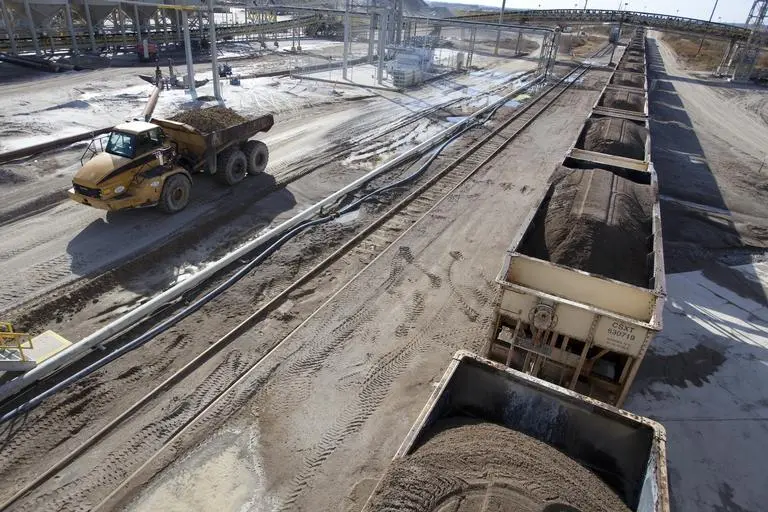PHOTO
TUNIS - Tunisia's foreign currency reserves dropped to a 16-year low after protests put a halt to phosphate exports, providing an early test for its new Central Bank governor who has pledged "extraordinary measures" to revive the country's economy.
Reserves fell to 11.569 billion dinars ($4.82 billion) by Feb 23, enough to cover 82 days of imports, compared with 13.702 billion dinars or 116 days in the same period last year, the central bank said on Friday.
Production of phosphate, a major source of foreign currency earnings, has been completely halted for the past month due to protests by young Tunisians, who have blocked mine entrances to demand work after they failed to get hired during a recruitment campaign.
Analysts say the fall of foreign currency reserves potentially threatens debt payments and food and energy imports.
Tunisia's trade deficit widened in December 2017 to a record $6.25 billion.
Marouane El Abassi, who took over as central bank governor this month, last week promised "extraordinary measures" to lift the country's economy, saying its indicators were "frightening".
Tunisia has a significant black market in foreign currency transactions, which one analyst said Abassi had the capacity to reduce.
"I think the governor has tools to stop these losses by adopting liquidity restrictions and withdrawing some banknotes from circulation in addition to setting up mobile banking", said Hatem Zaara, a financial analyst at local bank Amen.
Zaara said authorities should fully liberalize foreign currency accounts and grant amnesty for forex crimes to attract foreign currency back from the black market.
($1 = 2.4025 Tunisian dinars)
(Reporting By Tarek Amara; editing by John Stonestreet) ((tarek.amara@thomsonreuters.com;))





















